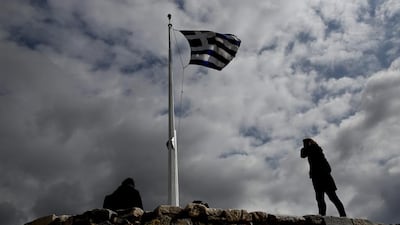At the dawn of European history, in the 5th century BC, the Athenians set out a principle of international relations that has brutal relevance today. During the 27-year war between Athens and Sparta, the Athenians laid siege to the small island of Melos, demanding it surrender and pay tribute. The people of the island argued they were few, weak and defenceless, and therefore should be allowed to remain neutral. They would do no harm.
The Athenians reminded them that in the real world the principles of justice applied only among equals, not between a great empire and a tiny island. In the case of Athens versus Melos, “the strong do what they will, the weak suffer what they must”. They conquered the island, killed the men and enslaved the women.
This phrase has rung down the centuries. For the strong it is the ultimate expression of the reality of power, stripping away modern attempts to create a fairer world based on universal principles of justice. For the weak, the message is different: a heroic people stood up to a great power and dared to say that it would not be weakened by showing some leniency. Both these arguments apply to the disputes tearing at the heart of Europe.
As regards the war in Ukraine, the Russian president, Vladimir Putin, is clearly a realist. For him, Ukraine is not an insignificant country, but a territory that he must control if Russia is going to play the role of a great power. There is no scope for live and let live.
Mr Putin been encouraged by the unwillingness of the western powers to risk a war against Russia and by their indecision on how to face him down. While Barack Obama has left open the possibility of sending weapons to Ukraine, the German chancellor, Angela Merkel, says arms supplies would make a bad situation worse. Whatever kit the West delivered, she has said, there was no prospect of defeating Russia on the battlefield.
This has paved the way for Russia to pursue its “hybrid war” in Ukraine in support of separatists in the east of the country who did not exist until the Kremlin magicked them into being. Against all the evidence, the Kremlin claims it is not supporting the separatists.
Thus Mr Putin attended a peace conference in Minsk last week while insisting that the ceasefire be delayed for two days to give time for the separatists to overrun the strategic transport hub of Debaltseve. The rebels failed to achieve this in time, but they kept going after the ceasefire, with support from over the Russian border, until they achieved victory on Wednesday and forced the Ukrainian army into a humiliating retreat. While Russia was supporting the rebels, it put a resolution to the UN Security Council endorsing the ceasefire, to show it could play the games of peace and war at the same time.
The western powers should not be surprised: Russia’s interest in its neighbours far exceeds that of the West – with some exceptions, such as Turkey. American ambitions to include Ukraine in the western orbit have been empty words.
The “realist” position in international affairs is not in fashion in Europe, where rights are elevated over might. Eight months ago, at a gathering of foreign affairs experts in London, John Mearsheimer, a US professor of political science at the University of Chicago, defied the consensus to state that Ukraine’s proximity to Russia meant it had no right to choose its political alignments. “That’s not the way the world works when a great power’s interests are threatened.” His words were greeted with derision, yet events have proved that the 21st century is not unlike the 5th century BC.
Strangely, while the European Union may have no stomach for the use of military force, the old laws of power still pertain between rich and poor countries. The modern-day Greeks, having suffered four years of painful austerity, are pressing the Germans and their allies in northern Europe for financial leniency. Like the people of Melos, they argue they are a tiny part of the European economy so some signs of mercy will have minimal effect on the EU. This is the rhetoric of the Greek government as it seeks a relaxation of the terms under which it receives outside support.
As Greece teeters on the edge of bankruptcy, it is now clear that the EU should have shown some leniency last year, when the previous government under Antonis Samaras, at enormous cost, had achieved a budget surplus – excluding interest payments – of 1.5 per cent of GDP.
He was sent back to make more cuts, which led to the election of the new far-Left Syriza government and set the scene for the current showdown.
The view of the European Central Bank and the EU finance ministers is that the smallest exception to the doctrine of austerity will bring the house crashing down. The positions of the belt-tightening governments in Italy, Spain and Portugal would become intolerable and the path of economic reform through austerity would be closed.
The story of Melos today illuminates a sharp divide in the European neighbourhood. The EU is an empire of money and trade, centred on its most powerful economy, Germany, with the financial interest dominant. Athenian rules apply to finance. Dissent – even when backed by a democratic election – must be crushed.
In Russia it is the opposite. Mr Putin’s realm is an empire of power, not money. Economic and financial sanctions are less important to him than keeping power at home and projecting it abroad. Athenian rules apply in the military and diplomatic spheres. Europe and Russia are neighbours but playing different games.
Alan Philps is a commentator on global affairs
On Twitter: @aphilps

